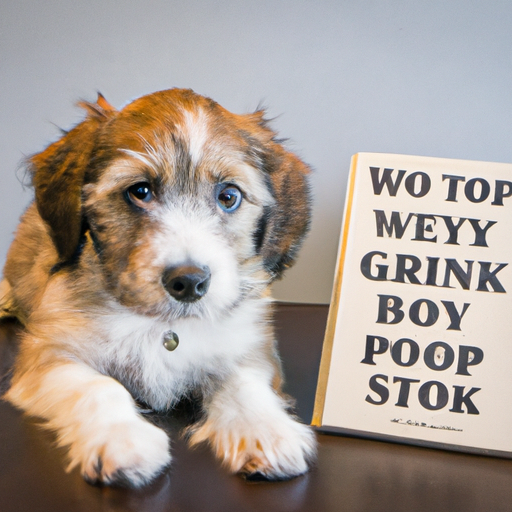As a caregiver, it’s natural to want to provide the best care for your new puppy, and this includes managing their barking habits. Uncontrolled barking can be distressing for both you and your puppy. It can also be annoying to your neighbors. This guide will provide you with eight effective strategies to help your puppy stop barking.
Understanding Why Puppies Bark
Before you try to stop your puppy from barking, it’s crucial to understand why they’re barking in the first place. Puppies may bark for several reasons:
- Attention-seeking
- Boredom
- Anxiety
- Fear
- Hunger
Understanding the root cause will help you to provide the right solution.
Training Your Puppy Not to Bark
A well-trained puppy is less likely to bark unnecessarily. Start training your puppy at a young age to stop barking on command. Here are some steps to follow:
- Wait for your puppy to start barking.
- As soon as they start to bark, say a command like “Quiet” in a firm but gentle voice.
- If they stop barking, reward them with a treat or praise.
- Repeat this process until they associate the command with ceasing barking.
Providing the Right Amount of Exercise
A well-exercised puppy is less likely to bark out of boredom or excess energy. The exact amount of exercise your puppy needs may vary based on their breed, age, and health. A general guideline is:
| Age | Exercise Needed |
|---|---|
| 2-3 months | 5 minutes per day |
| 3-6 months | 5 minutes twice a day |
| 6-12 months | 20-30 minutes twice a day |
Creating a Calm Environment
Creating a calm and peaceful environment can help reduce your puppy’s anxiety, a common cause of excessive barking. Try the following:
- Minimize sudden loud noises
- Keep a consistent routine
- Provide a safe space for your puppy to retreat to
Using Distractions
Another effective strategy to stop your puppy from barking is to use distractions. This could involve a toy, a chewy treat, or introducing a new activity. The aim is to divert their attention away from whatever is causing them to bark.
Ignoring the Barking
Sometimes, the best response to a barking puppy is to ignore them. This doesn’t mean neglecting their needs, but simply not responding to their attention-seeking barks. Over time, your puppy will learn that barking doesn’t always get your attention.
Consulting with a Professional
If your puppy’s barking continues to be a problem despite your best efforts, it may be time to consult with a professional. A professional dog trainer or a veterinary behaviorist can provide personalized advice and strategies to address your puppy’s barking.
Using Bark Control Devices
As a last resort, you may consider using bark control devices. These devices emit a high-pitched sound or a gentle spray of citronella to discourage barking. However, these should be used sparingly and under the guidance of a professional.
FAQs
Q: How long does it take to train a puppy not to bark?
A: It can take several weeks or even months of consistent training. Remember, patience and consistency are key.
Q: Is it normal for a puppy to bark a lot?
A: Yes, barking is a normal part of puppy behavior. However, excessive barking could indicate an underlying issue, such as anxiety or boredom.
Q: Can I use a bark collar on my puppy?
A: It’s recommended to use bark collars as a last resort and under the guidance of a professional. It’s better to address the root cause of the excessive barking.
Q: Should I ignore my puppy when they bark at night?
A: It depends on the situation. If your puppy needs to go outside or is scared, you should respond. However, if they’re barking for attention, it might be best to ignore them.
Remember, every puppy is unique and what works for one may not work for another. Always approach your puppy with patience and understanding, as this will not only help manage their barking but also strengthen your bond with them.



